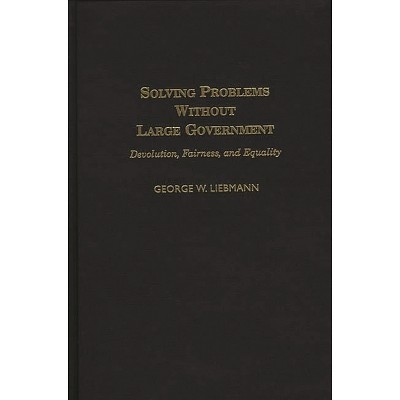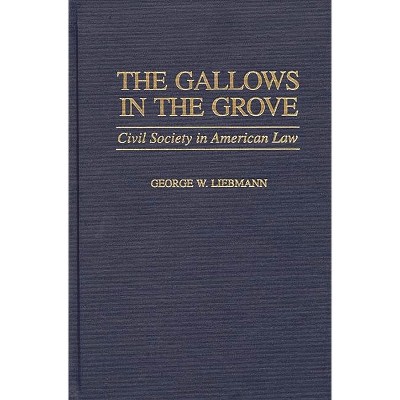Sponsored

The Little Platoons - by George Liebmann (Hardcover)
In Stock
Sponsored
About this item
Highlights
- The Little Platoons examines sub-local government--the small-scale structures of civil society that lie between the individual and large governmental actors--in England, France, Germany, the United States, Russia, China, and Japan.
- About the Author: GEORGE W. LIEBMANN, an attorney in private practice in Baltimore, Maryland, is a graduate of Dartmouth College and the University of Chicago School of Law.
- 190 Pages
- Political Science, American Government
Description
About the Book
The Little Platoons examines sub-local government--the small-scale structures of civil society that lie between the individual and large governmental actors--in England, France, Germany, the United States, Russia, China, and Japan. The work examines community councils, educational districts, neighborhood organizations, and the like, as seen in various societies in the modern age. And, in identifying common attributes of these civil and societal organizations, the work has particular relevance--and indeed makes ameliorative recommendations--for the problems of our modern cities. In a period of dissatisfaction with a self-regarding and centralized political class and with both market and bureaucratic institutions, Liebmann's thoughtful analysis of community and civil organization in a variety of societies and traditions broadens our understanding of comparative politics and sociology, urban planning, and state and local government.
Book Synopsis
The Little Platoons examines sub-local government--the small-scale structures of civil society that lie between the individual and large governmental actors--in England, France, Germany, the United States, Russia, China, and Japan. The work examines community councils, educational districts, neighborhood organizations, and the like, as seen in various societies in the modern age. And, in identifying common attributes of these civil and societal organizations, the work has particular relevance--and indeed makes ameliorative recommendations--for the problems of our modern cities. In a period of dissatisfaction with a self-regarding and centralized political class and with both market and bureaucratic institutions, Liebmann's thoughtful analysis of community and civil organization in a variety of societies and traditions broadens our understanding of comparative politics and sociology, urban planning, and state and local government.Review Quotes
"Little Platoons fills a significant gap in modern social theory. In the tradition of Tocqueville, he reminds us of the continuing importance of small-scale political structures. More importantly, he shows how "sublocal governments" may hold the keys to some of the most perplexing problems of modern social welfare states."-Mary Ann Glendon Learned Hand Professor of Law, Harvard Law School
?Liebmann, an attorney in private practice, provides a historical and legal view of the semiofficial, small-scale governments that have supplied services to local publics. He surveys not only the US but also Britain, France, Germany, China, Russia, and Japan for their unique grassroots institutions....Of interest to specialists and to libraries with strong collections in law and government organization.?-Choice
"Liebmann, an attorney in private practice, provides a historical and legal view of the semiofficial, small-scale governments that have supplied services to local publics. He surveys not only the US but also Britain, France, Germany, China, Russia, and Japan for their unique grassroots institutions....Of interest to specialists and to libraries with strong collections in law and government organization."-Choice
About the Author
GEORGE W. LIEBMANN, an attorney in private practice in Baltimore, Maryland, is a graduate of Dartmouth College and the University of Chicago School of Law. He has served as an executive assistant to the Governor of Maryland and Assistant Attorney General of Maryland, and he has taught at Johns Hopkins University and the University of Maryland School of Law. In 1993-94, while writing this book, Liebmann was a Simon Industrial and Professional Fellow at the University of Manchester in England.Shipping details
Return details
Frequently bought together

Trending Non-Fiction
















